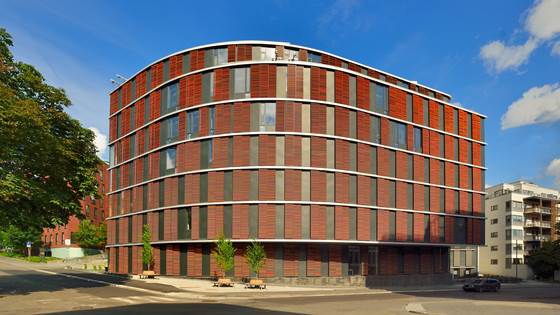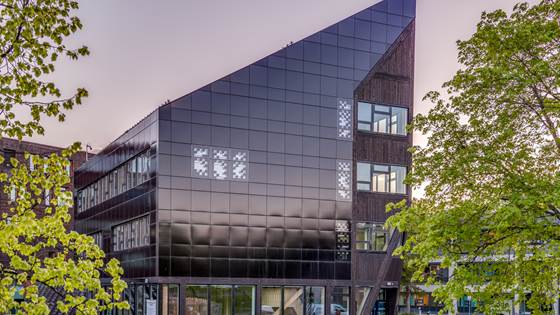We specialize in implementing advanced technologies and creating digital tools for the built environment. The group displays a unique combination of:
-
- Strong digital competency, supported by its own developer environment comprising four skilled developers
- Exclusive access to a large-scale research facility known as ZEBLab, a national infrastructure where innovative products can be tested / developed
- In-depth knowledge of various building aspects such as ventilation, energy performance and BIM
The primary mission of this group is to enhance the profitability and the sustainability of the AEC industry. Our efforts are directed towards optimizing energy consumption in buildings (via data-driven applications), enhancing the well-being of people (indoors and outdoors), and streamlining AEC processes.
Seamless data workflows in AEC
- The construction and engineering industry is currently going through a digital transformation. However, most digital tools and systems are currently isolated in their own separate systems.
- Our research area is focused on overcoming these challenges. We aim to make digital solutions that can be easily replicated from one building project to another, that can be expanded throughout the entire industry, and that can smoothly transition into other sectors.
- The main goal of our research is to contribute to the standardization of data formats, data structures, and digital protocols that promote "interoperability" between different systems. This will not only make systems work together more seamlessly, but also facilitate the development of advanced models and machine-learning solutions.
- Our research area covers several important topics, including service development (such as using LLM technology), simulation, visualization, improving access to data (API), organizing data effectively (taxonomies) and gathering data through sensors. We are also using both open data and BIM applications.
Optimization of design and operation of buildings / neighbourhoods
- The building industry is facing significant sustainability and energy efficiency challenges. As part of the solution, digitalization can be seen as an enabler to make new and existing buildings more energy-efficient.
- Our research is actively engaged in the adaptation of existing buildings to an increased level of digitization and also addresses the challenges associated with manually collecting data. We aim to expand our efforts from individual buildings to entire neighbourhoods.
- Regarding building design, part of our research focuses on the building performance simulation using different tools.
- Regarding building operation, one of our research objectives is the development of innovative approaches that simplify the process of data retrieval and provide dependable, precise data to take active decisions for operation and control of building energy systems during the operational phase.
- In our research, we focus on various crucial areas, including ventilation, heating, indoor climate (from a health perspective), building energy flexibility, energy calculations, Building Information Modeling (BIM), and micro-climate considerations, especially at the neighbourhood scale.
Digitalization and people
- Focusing on people when developing digital solutions for the AEC industry is essential for improving collaboration, operations and productivity.
- Our research area ensures that "everyone" in the Architecture, Engineering, Construction, and Facility Management (AEC/FM) industry can actively benefit from digital solutions.
- The primary goal of our research area is to explore the potential of adapting the Industry 5.0 framework, which emphasizes the integration of human input, to the AEC/FM industry.
- In our research, we investigate various important topics, including visualization using technologies like Augmented Reality (AR) and Virtual Reality (VR), game technology, gamification, qualitative research and chatBOT applications.




